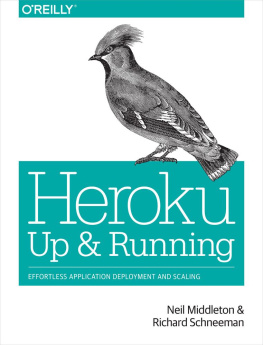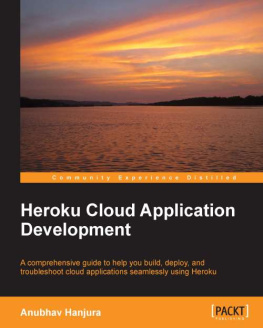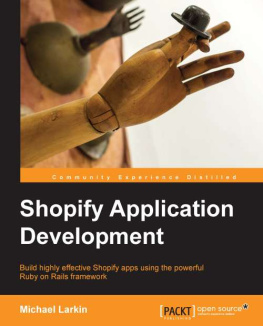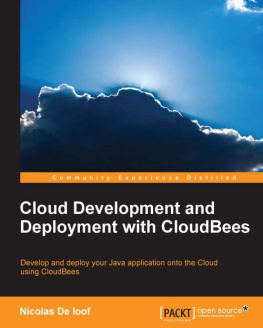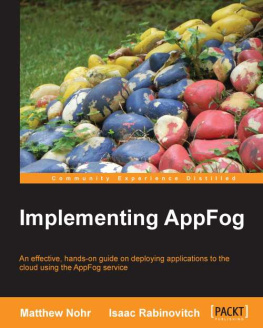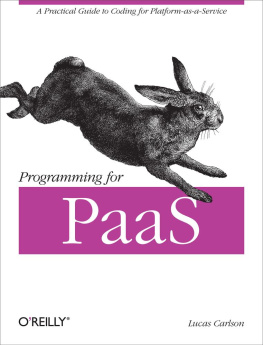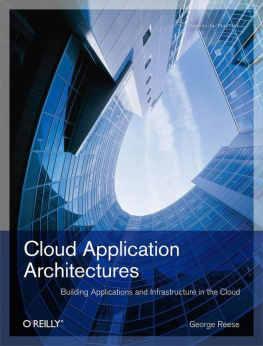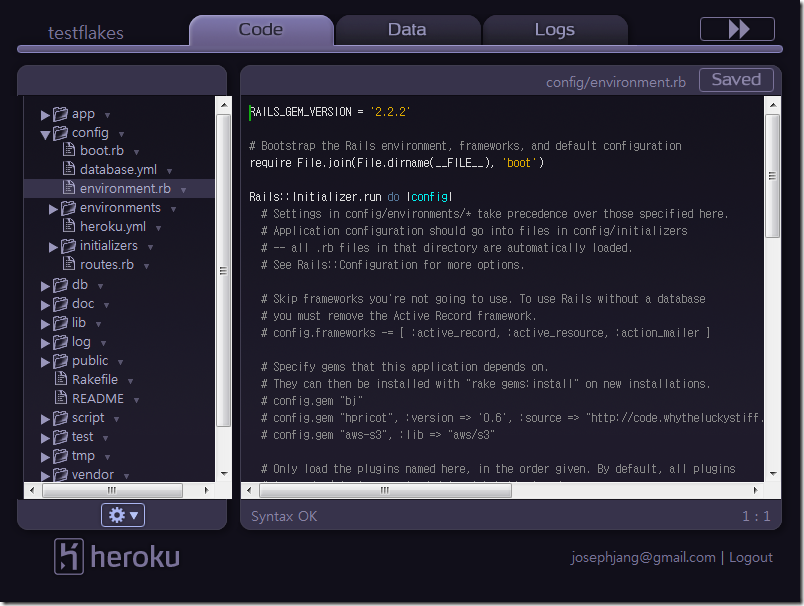Neil Middleton - Heroku: Up and Running
Here you can read online Neil Middleton - Heroku: Up and Running full text of the book (entire story) in english for free. Download pdf and epub, get meaning, cover and reviews about this ebook. year: 2013, publisher: OReilly Media, genre: Computer. Description of the work, (preface) as well as reviews are available. Best literature library LitArk.com created for fans of good reading and offers a wide selection of genres:
Romance novel
Science fiction
Adventure
Detective
Science
History
Home and family
Prose
Art
Politics
Computer
Non-fiction
Religion
Business
Children
Humor
Choose a favorite category and find really read worthwhile books. Enjoy immersion in the world of imagination, feel the emotions of the characters or learn something new for yourself, make an fascinating discovery.
- Book:Heroku: Up and Running
- Author:
- Publisher:OReilly Media
- Genre:
- Year:2013
- Rating:5 / 5
- Favourites:Add to favourites
- Your mark:
Heroku: Up and Running: summary, description and annotation
We offer to read an annotation, description, summary or preface (depends on what the author of the book "Heroku: Up and Running" wrote himself). If you haven't found the necessary information about the book — write in the comments, we will try to find it.
Take full advantage of Herokus cloud-based hosting services. This guide takes you through the inner workings of this PaaS platform and delivers practical advice for architecting your application to work as efficiently as possible. Youll learn best practices for improving speed and throughput, solving latency issues, locating and fixing problems if your application goes down, and ensuring your deployments go smoothly.
By covering everything from basic concepts and primary components to add-on services and advanced topics such as buildpacks, this book helps you effectively deploy and manage your application with Heroku.
- Learn your way around Heroku with the command line interface
- Discover several methods for scaling your application to increase throughput
- Speed up response time through performance optimizations
- Solve latency issues by deploying your Heroku instance in new regions
- Choose the right plan for using Herokus PostgreSQL database-as-a-service
- Get a checklist of items to consider when deploying your application
- Find and fix problems during deployment, at runtime, and when your application goes down
- Understand how Heroku buildpacks work, and learn how customize your own
Neil Middleton: author's other books
Who wrote Heroku: Up and Running? Find out the surname, the name of the author of the book and a list of all author's works by series.

